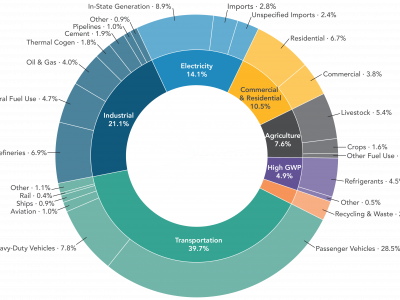Regulatory Policy
I’m With Paul
Krugman claims that climate action doesn’t mean an end to growth. He’s right.
In a recent column, Paul Krugman argued that cutting carbon emissions doesn’t have to mean an end to economic growth. He’s right about that. Carbon emissions and growth aren’t joined at the hip. He could have added that economic growth and quality of life don’t necessarily go together. The numbers are really clear about the …
Continue reading “I’m With Paul”
CONTINUE READINGThe Presidency Under Siege
The current Justices are no friends of presidential power.
As recent scholarship has shown, the Supreme Court has been increasingly aggressive in countering exercises of presidential power. From the environmental perspective, West Virginia v. EPA is the most relevant example of the Court’s efforts to cut the presidency down to size. True, the Court purported to be chastising EPA, part of the bureaucracy. Yet …
Continue reading “The Presidency Under Siege”
CONTINUE READINGThe Obesity Pandemic
It’s a global phenomenon, with poorly understood causes. But there’s no point in blaming the victims.
I’ve written in the past about the American obesity epidemic. Obesity rates have continued to climb in the United States, though the rate of increase has leveled out. But obesity is also on the rise globally. The obesity rate has increased everywhere. In nine countries, at least one out of five people is now obese: …
Continue reading “The Obesity Pandemic”
CONTINUE READINGKeep on Trucking
A new rule will clean up exhaust from new diesels, a major health threat.
Last week, EPA finalized its new rule imposing emission limits on new heavy trucks. The new regulation was clearly a massive undertaking. EPA’s formal announcement of the new rule is 1100 pages long. The accompanying summary of comments on the proposed rule and EPA’s responses is another 2000 pages. This is partly due to the …
Continue reading “Keep on Trucking”
CONTINUE READINGThe Passing of a Respected Water Warrior
Remembering California Water Law Attorney Clifford Lee
Clifford (Cliff) Lee, one of California’s most knowledgable and respected water law experts, died suddenly late last month. His passing leaves a tremendous void in the field of California water law and policy. After earning his undergraduate degree from U.C. Berkeley, Cliff attended law school at U.C. Davis and quickly became entranced by water law. …
Continue reading “The Passing of a Respected Water Warrior”
CONTINUE READINGSupercharging Electrolyzers to Support Zero-Emission Hydrogen Generation
New CLEE/UCLA report identifies policy solutions to grow electrolyzer adoption
Join us for a webinar on December 13 at 12 PM to discuss the report’s findings. Hydrogen could play a critical role in helping California to decarbonize its electricity grid and achieve carbon neutrality. The gas can be generated from surplus renewable energy resources (like solar or wind) to create zero-emission (or “green”) hydrogen. The …
Continue reading “Supercharging Electrolyzers to Support Zero-Emission Hydrogen Generation”
CONTINUE READINGEnergy Price Shocks and the Failures of Neoliberalism
Why it’s time to rethink electricity market design to ensure a clean and equitable energy future
This post was originally published on the Law and Political Economy blog. The global energy price shocks of the past two years have made it painfully clear that energy cannot be treated as an ordinary commodity and that many governments have been insufficiently attentive to energy security. Given its dependence on Russian gas, the EU has …
Continue reading “Energy Price Shocks and the Failures of Neoliberalism”
CONTINUE READINGWasting Gas
A proposed rule limiting flaring and venting of natural gas is a win for everyone except greedy oil and gas operators.
Yesterday, the Interior Department posted a proposed rule to limit flaring and venting of natural gas on public lands. The rule will be good for everyone except the oil and gas operators who waste the gas, increasing methane and carbon emissions while giving the public nothing in return. The rule is clearly a step in …
Continue reading “Wasting Gas”
CONTINUE READINGCalifornia’s Secret Weapon: The Scoping Plan
There’s no substitute for a comprehensive policy vision.
The scoping process has been key to California’s success in cutting greenhouse gas emissions. The process requires the government to assess past progress, project future emissions, and come up with a strategy to meet its climate goals. In contrast, in many states – and at the federal level – there’s no real mechanism for a …
Continue reading “California’s Secret Weapon: The Scoping Plan”
CONTINUE READINGHappy 50th Anniversary, Federal Clean Water Act
One of America’s Foundational Environmental Laws Has Proven Transformational, But Requires Updating a Half-Century Later
The Clean Water Act (CWA), one of the nation’s most important environmental laws, is 50 years old today. It’s proven to be one of the most successful of America’s bedrock federal environmental statutes. But the CWA is far from perfect, needs some important updating, and will probably never fully achieve the aspirational goals Congress proclaimed …
Continue reading “Happy 50th Anniversary, Federal Clean Water Act”
CONTINUE READING












